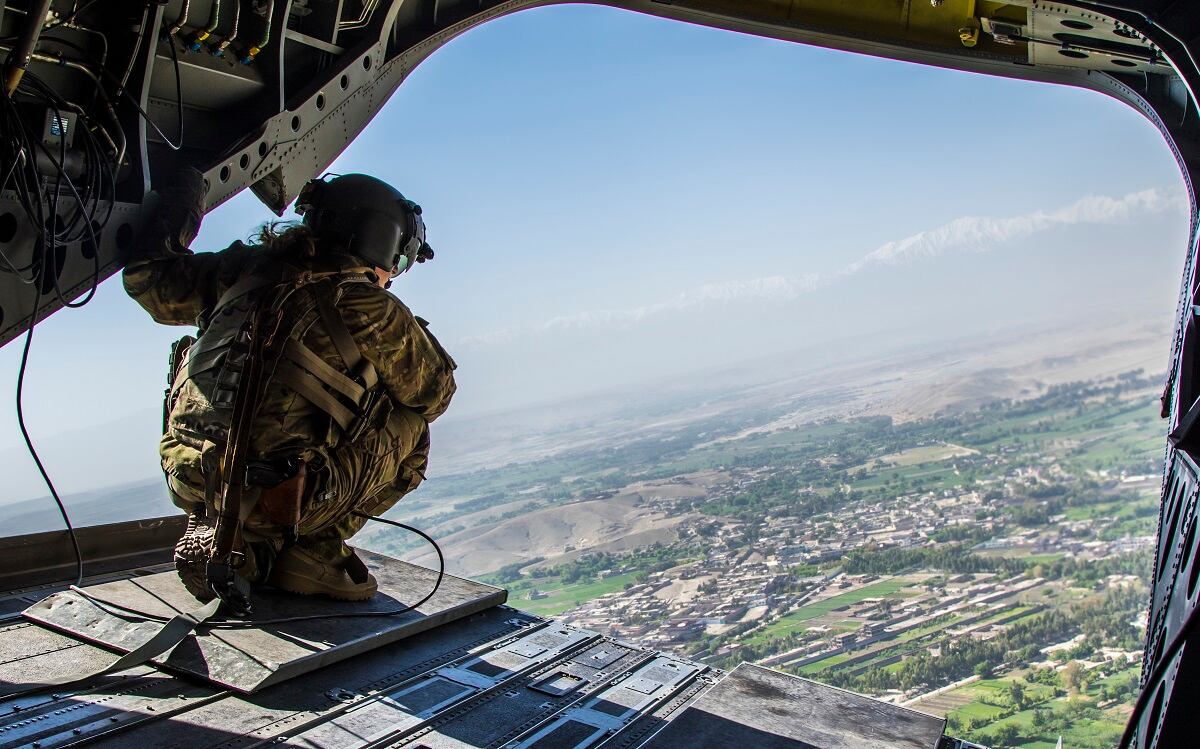WASHINGTON — The House Armed Services Committee overwhelmingly approved plans for a $716 billion defense authorization bill for fiscal 2019 which includes a big boost in military end strength, the largest military pay raise in nine years and few of the contentious fights that have dominated defense debates in recent years.
The committee passed the legislation by a 60-1 vote after more than 14 hours of debate on Wednesday and early Thursday morning. The marathon mark-up is held every year, with lawmakers publicly discussing a host of national security and defense operations policies.
In recent years, much of that work has been focused on issues of rebuilding the military, with lengthy discussions on force size, equipment priorities and cost-saving reforms.
But, with Congress agreeing to a two-year budget deal earlier this year with $716 billion in defense spending in fiscal 2019, much of this year’s work focused on smaller policy issues and less polarizing proposals, although Democratic amendments on issues like border security and immigration issues were still rejected along party lines.
RELATED

The sprawling budget bill — which still must survive a full House vote later this month and negotiations with the Senate later this year — includes a 2.6 percent pay raise for troops starting next January and the addition of almost 16,000 active-duty troops to the armed forces ranks.
It authorizes defense officials to spend more than $39 billion on military aviation upgrades, $18.5 billion to replace aging Army equipment, and $25.5 billion for equipment maintenance and replacement parts.
Lawmakers backed administration plans for 77 new F-35 aircraft, two additional Virginia-class submarines and littoral combat ships, and modernization plans for almost 3,400 Joint Light Tactical Vehicles.
In recent years, lawmakers have included major personnel and acquisition reforms in the authorization bill, one of the few pieces of legislation to successfully advance through Congress amid other partisan fights (committee officials said a defense authorization bill has passed for 57 straight years).
This year’s most hyped reform effort was a plan by committee chairman Mac Thornberry, R-Texas, for a 25 percent cut to Pentagon support agencies, tagged the “fourth estate” for their ancillary relationship to war fighting.
But Thornberry walked back most of those provisions in the days leading up to the mark-up, giving more deference to the Pentagon on ways to cut costs.
A Democratic effort to trim back the proposal even further by preserving the Defense Information Systems Agency was defeated along party lines. But an amendment to protect the Test Resource Management Center — another of Thornberry’s proposed cuts — was approved.
In addition to a host of annual pay and benefits reauthorizations, lawmakers from both parties approved in the legislation a plan to create a new commission to review spiking military aviation mishaps and physiological episodes, an issue that has alarmed the committee but has been downplayed by Pentagon officials as not a widespread crisis.
Lawmakers voted unanimously to defeat an amendment from Rep. Mike Turner, R-Ohio, that would have slowed down the groundwork for a space force. Space Force does not appear in the bill by name, but it does recycle a provision from last year’s effort that would establish a sub-unified command for space under U.S. Strategic Command for carrying out joint space war-fighting.
The issue has gained extra prominence since President Donald Trump suggested he would be in favor of creating a sixth military branch dedicated to space in a series of public appearances in recent weeks.
RELATED

Republicans batted down Democratic amendments to limit the Trump administration’s pursuit of low-yield nuclear weapons to match Russia. The bill itself is supportive of the Trump administration’s Nuclear Posture Review, authorizing $65 million for developing and producing a low-yield nuclear warhead.
Democratic efforts to place limits on Trump-ordered National Guard deployments to the U.S.-Mexico border were similarly thwarted on the panel, where Republicans outnumber Democrats 34-to-28.
The measure now heads to the full House floor for a vote in coming weeks, and then likely to months of debate with Senate negotiators. The Senate Armed Services is scheduled to adopt its own draft of the legislation later this month.
With midterm elections looming this November, lawmakers’ legislative schedule is significantly reduced this summer. The topline spending agreement is expected to help speed the process, but the final bill passage hasn’t happened before the start of the new fiscal year since 2009.
Leo covers Congress, Veterans Affairs and the White House for Military Times. He has covered Washington, D.C. since 2004, focusing on military personnel and veterans policies. His work has earned numerous honors, including a 2009 Polk award, a 2010 National Headliner Award, the IAVA Leadership in Journalism award and the VFW News Media award.
Joe Gould was the senior Pentagon reporter for Defense News, covering the intersection of national security policy, politics and the defense industry. He had previously served as Congress reporter.





